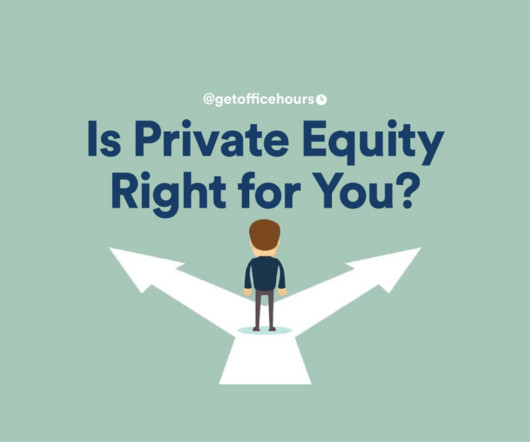Is Private Equity Right for You?
OfficeHours
AUGUST 9, 2023
Private equity involves investing capital directly into private businesses that are not publicly traded on stock exchanges (that would be a hedge fund). Once improved, the exit can then take place, usually in the form of another sale or an Initial Public Offering (IPO), both of which are usually under the advice of an investment bank.













Let's personalize your content